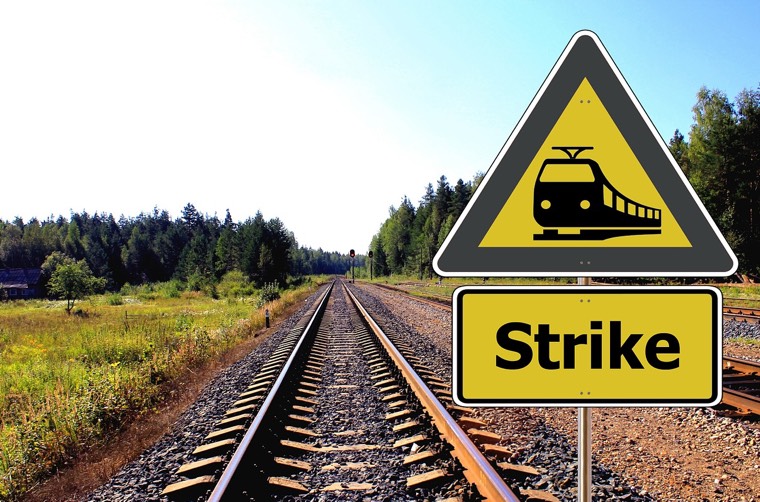Whether you’re a newcomer to Norway or have lived here for years, understanding the union system is essential to understanding how the Norwegian labour market functions.
In Norway, trade unions play a powerful role in shaping working life. With a high unionisation rate and a well-established framework for cooperation between workers and employers, the Norwegian labour model is often cited as a model for constructive labour relations.

Even in the absence of a national minimum wage, collective agreements negotiated by trade unions help ensure fair pay and good working conditions across many industries.
What Is a Trade Union?
A trade union is an organisation formed by employees to protect their rights and promote their interests in the workplace. In Norway, trade unions typically represent workers within a specific profession or industry and can operate at local, regional, or national levels.
The core responsibilities of trade unions include negotiating pay and conditions, offering legal advice, representing workers in disputes, and improving health and safety in the workplace.
They also play an important political and social role, influencing national labour policies and legislation.
Most Norwegian trade unions are affiliated with national federations, which are in turn part of one of the main employee confederations. These umbrella organisations negotiate major agreements and coordinate action across entire sectors.
The Norwegian Trade Union Landscape
Norway has a well-organised and structured trade union system. Individual unions are grouped into federations, which in turn belong to national-level confederations.

There are four major employee confederations in Norway:
LO (Landsorganisasjonen i Norge): The Norwegian Confederation of Trade Unions is the largest and most influential confederation, with around 880,000 members. It represents a wide range of workers, particularly in the private sector.
Its biggest member is Fellesforbundet, representing over 160,000 workers in construction, industry, hospitality, and other sectors.
UNIO (Confederation of Unions for Professionals): Represents public sector professionals such as teachers, nurses, and police officers. It is the second-largest confederation in Norway.
Akademikerne (Federation of Norwegian Professional Associations): Focuses on workers with advanced degrees, such as doctors, engineers, and lawyers. Akademikerne has experienced significant growth. Between 2010 and 2020, its employed membership increased by 60.3%.
YS (Yrkesorganisasjonenes Sentralforbund): A politically independent confederation covering a variety of professions, YS was formed in 1977 and consists of 10 affiliated unions, with a total membership of about 215,000 persons.
Many industries and professions have their own specialised unions. For example, journalists often join the Norwegian Union of Journalists (Norsk Journalistlag), while university staff may join Forskerforbundet (Norwegian Association of Researchers).
Membership and Benefits
Joining a trade union in Norway is voluntary, but highly common. Around half of all workers are members of a union, and the rate is even higher in the public sector.

To become a member, you pay regular membership dues, which might be a flat rate or a percentage of your salary. These dues are tax-deductible.
Union membership gives you access to a range of benefits, including:
- Legal assistance for workplace disputes
- Representation in negotiations and disciplinary matters
- Access to insurance schemes (travel, health, legal, etc.)
- Support in case of unfair dismissal or unpaid wages
- Courses and training programmes
Foreign workers in Norway have the same rights to join a union as Norwegians. Many unions also provide support in English and other languages.
Freelancers and self-employed workers are also often eligible to join relevant unions. They may gain access to networking opportunities, business insurance, legal help, and lobbying on freelance issues.
Collective Agreements in Norway
Although there is no national minimum wage in Norway, pay and working conditions are largely determined through collective agreements.
These are contracts negotiated between trade union federations and employers' organisations that set standards for pay, working hours, holidays, pensions, and more.

In some sectors, collective agreements are declared generally applicable (allmenngjorte tariffavtaler) by the government.
This means the terms of the agreement must be followed by all employers in the sector, regardless of whether they are party to the agreement or if their employees are union members.
The purpose of this mechanism is to prevent wage dumping, especially in sectors with a high proportion of foreign or temporary workers, and to uphold decent working standards.
As of 2025, generally applicable collective agreements cover several sectors, including:
- Construction
- Cleaning services
- Hospitality (hotels and restaurants)
- Maritime industries (shipbuilding and shipping)
- Agriculture and horticulture
These agreements are enforced by the Norwegian Labour Inspection Authority, which carries out workplace inspections and can impose penalties for violations.
The collective bargaining process in Norway is characterised by a high degree of coordination and mutual respect. It is underpinned by the principle of the Norwegian Model, where employers and employees work together to maintain a stable and competitive economy with low levels of inequality.
Strikes and Industrial Action in Norway
Strikes are legal in Norway but are subject to strict regulations. They are typically used as a last resort if mediation between unions and employers fails during collective bargaining.
Because collective agreements can impact large parts of the economy, strikes, when they do happen, can be significant. For example:

In 2022, pilots at Scandinavian airline SAS went on strike, grounding hundreds of flights before reaching a three-year agreement.
In 2023, teachers and education staff held a long strike over pay and conditions before an agreement was finally reached.
Public Sector Strike (May–June 2024): A significant public sector strike occurred when negotiations between the state and unions representing professionals like police officers, university staff, and meteorologists broke down.
The strike led to disruptions in various services, including passport processing and weather forecasting. The government eventually intervened, mandating compulsory arbitration to resolve the dispute.
Strikes are usually well-organised and planned in advance, with the aim of returning to negotiations rather than prolonged disruption. Norway’s National Mediator (Riksmekleren) often steps in to help resolve disputes before strike action begins.
Should You Join a Trade Union in Norway?
If you’re living and working in Norway, joining a trade union can be highly beneficial. I think that's especially true as a foreign national, as it provides you with support, protection, and a voice in workplace matters.
Trade unions are a central part of Norway’s working culture. The cooperative model between unions, employers, and the state has created a high-trust, high-wage economy with strong worker protections.
While membership is not mandatory, in many industries it’s expected or encouraged. Even if you never need legal help or representation, the collective power of unions helps maintain strong labour rights across the country.


Hello
Am a foreign worker in norway working in IT industry. Could anyone please email me how to join in union . Please send me either link or procedure to my email below
[email protected]
Thank you
Sanjay